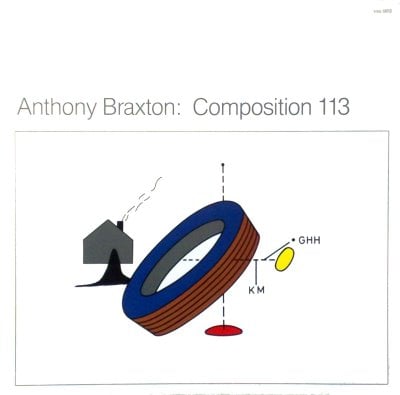If you have read any of my music reviews here, you know I am strongly drawn to arrhythmic and atonal music in the jazz and classical genres. Needless to say this sort of music isn’t very popular. There are certain artists that I love that most people I know, even those who like some amount of modern jazz, just cannot fathom.
Here is a great example, with a very young Frank Zappa appearing on the Steve Allen show to play … the bicycle …
Next we have Pierre Schaeffer, who is credited with the origins of ‘musique concrete’ movement of using recordings of actual sounds rearranged into musical constructs:
And finally, the creator of perhaps my favorite record of 2010 so far, Sam Newsome:
Each of those recordings features broad use of atonal and arrhythmic devices, particularly Derek Bailey. Yet there is also structure in each of them – or at least there is to my mind.
And it is that apparent lack of structure and harmonic consonance that makes this music so unlistenable to a broad range of audiences according to a report in the Telegraph.uk .
Here is an excerpt:
Philip Ball, author of The Music Instinct, has drawn on the latest scientific findings from neuroscientists to show structure and patterns in music are a fundamental part of musical enjoyment.
He said: “Many people still seem to find modern classical music challenging. If that is the case, then they can relax as it is challenging for a good reason and it is not because they are in some way too musically stupid to appreciate it.
“The brain is a pattern seeking organ, so it looks for patterns in music to make sense of what we hear. The music of Bach, for example, embodies a lot of the pattern forming process.
“Some of the things that were done by those composers such as Schoenberg undermined this cognitive aid for making music easier to understand and follow. Schoenberg’s music became fragmented which makes it harder for the brain to find structure.
Mr Ball believes that many traditional composers such as Mozart, Bach and Beethoven subconsciously followed strict musical formula to produce music that was easy on the ear by ensuring it contained patterns that could be picked out by the brain.
In the early twentieth century, however, composers led by Schoenberg began to rally against the traditional conventions of music to produce compositions which lack tonal centres, known as atonal music.
Under their vision, which has been adopted by many subsequent classical musicians, music no longer needed to be confined to a home note or chord.
But such atonal music has been badly received by audiences and critics who have found it difficult to follow.
So there you have it – those unexpected events such as unresolved dissonance cause stress on the brain that makes the musical experience less enjoyable for the majority of listeners.
But what does that mean for folks such as myself who see the structure and patterns and beauty in music that my family has more than once categorized as ‘horrible chaotic noise’? I have long wondered whether my avocation as a statistician, as someone who is constantly mathematically seeking patterns and relationships in seemingly random and chaotic structures, is directly related to my enjoyment of music with a seeming ansence of any structure?
Alas that is probably the subject for some other study in the future.
What do you think? Do you enjoy ANY of the videos I featured? Well, the Zappa one works on a pure comedic level regardless of the music, but the others are rather challenging listens … so what do you think?
To close, here is something from John Zorn, someone whose use of harsh atonality makes his music challenging, yet it is also highly structured and orchestrated.
Source: Telegraph.uk via Neatorama


Lol RT @GearDiarySite: My Family Now Has a Scientific Reason to Hate My Music: Their Brains! http://bit.ly/dyjEMk
RT @geardiary: My Family Now Has a Scientific Reason to Hate My Music: Their Brains! #Digital Music #Offbeat http://bit.ly/ba6hjz